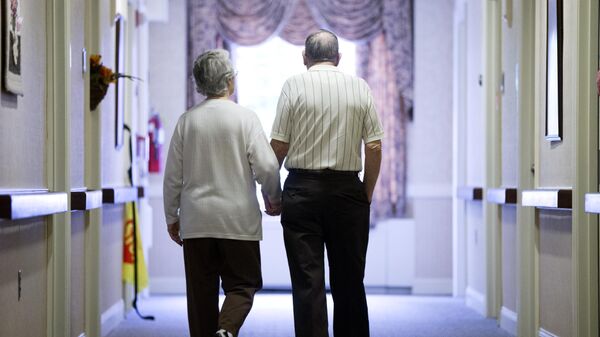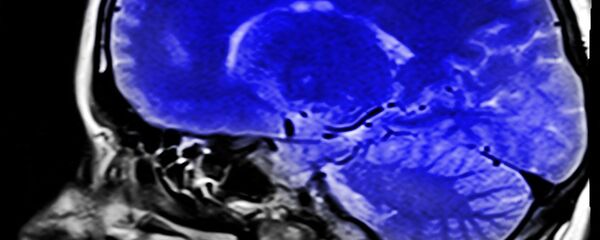Sputnik: What is ‘freezing'?
Steve Ford: Parkinson's is a condition that impacts 145,000 people in the UK. One of the problems that develop over time is a movement disorder, and as the drugs that people are on start to become less effective, people's movement is impaired.
And for some people that means that effectively they freeze, they suddenly can't move. You might be crossing the road, you might be standing in a supermarket queue, and it's almost as if your brain and your legs don't feel connected, and the signals don't reach whatever they are supposed to reach. It's a sign that the drugs are not as effective as they used to be, and they can cause real problems for people.
Sputnik: What does a person who freezes experience? What are the challenges that these people face in everyday life?
Steve Ford: The problem, I think, people talk about is a lack of confidence because you don't know when this is going to happen. It does really kind of affect your confidence to go out and do those kind of everyday activities that you need to do. And I guess, you know, people talk about stress and anxiety, their being part of that and making things worse.
READ MORE: Human Trials of Stem Cell Therapy for Parkinson's Disease to Begin in Japan
Sputnik: What do you think of the results of the survey?
Steve Ford: I am not surprised. I think we all can feel kind of uncomfortable when we are in a public situation, and we feel that someone is in a bit of distress: we are not sure if we know how we can help, we are not sure what kind of responses there will be.
I think that the message from this though is that we do need to understand Parkinson's, we do need to make sure that in these kind of situations we do feel that we can just go up to someone and just say ‘Are you okay? Do you need a hand?'. You know, what's the worst that could happen? Someone that says ‘No, it's alright, I‘m fine, thank you.' The fact that this could be any of us actually that are in this kind of situation, and just thinking how would we want to be dealt with if this were us.
Sputnik: What can one do to help a person caught in a freezing attack?
Steve Ford: To say ‘Are you okay? Do you want a helping hand? Can I help you across the road? Can I help you get something out of your purse when you are in the supermarket queue?', you know, just being prepared to do that. Maybe it's something simple as not looking hostile, not tutting, not adding to the stress of the situation by response. A smile is better than a frown.
The views expressed in this article are those of the speaker and do not necessarily reflect those of Sputnik.


